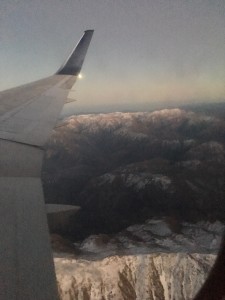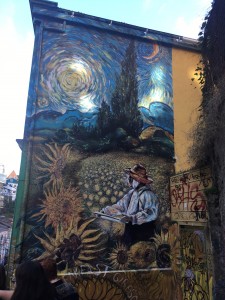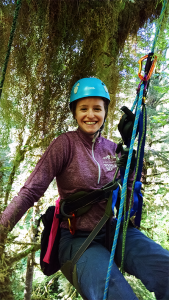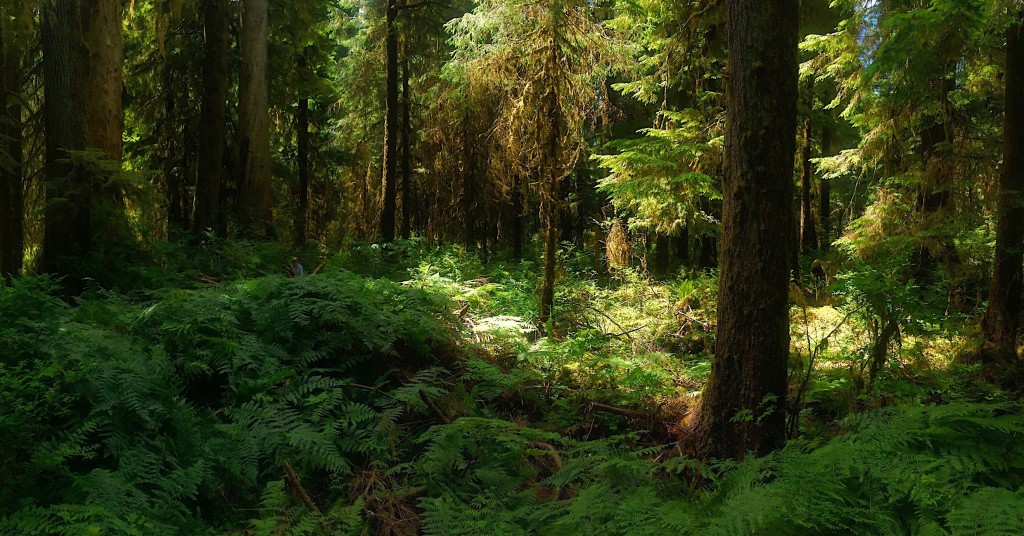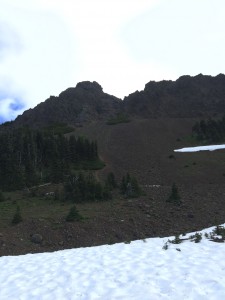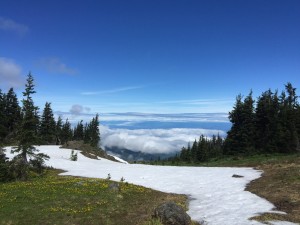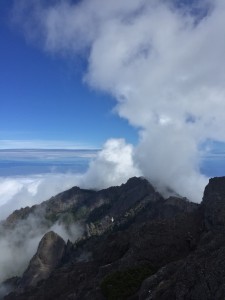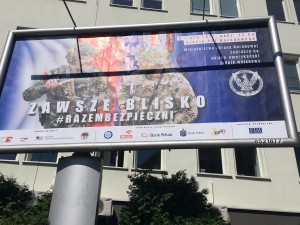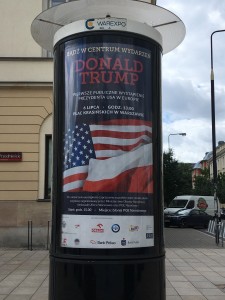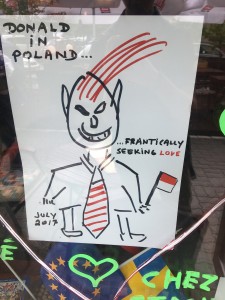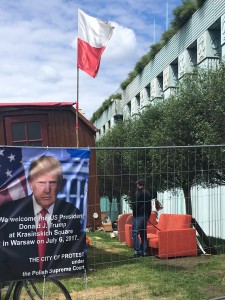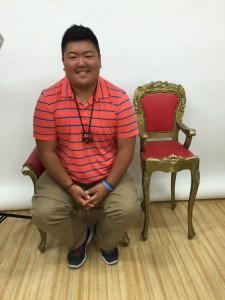I was born a worrier. I can’t remember ever making a decision without thoroughly examining every single thing that could possibly go wrong – no matter how extreme. I remember when I was a little kid and my parents would leave home to go get groceries I would worry about them getting into a car crash and never coming back. My imagination would run wild with visions of seeing my mom in a hospital bed and moving to Ohio to live with my grandparents. If someone knocked on the door while they were gone I would hide under my bed, scared that they were there to rob me. I always had a tendency to jump to the worst conclusions no matter how ridiculous they were, and that habit carried over into my adulthood.
Now, if I am on my own I am very rarely in the present. My mind has a tendency to wander, to think about the past and the future: everything that has gone wrong and everything that could go wrong; and that is exactly what was happening last Monday when I stepped on a plane to study abroad in Valparaiso, Chile for five months. As you can imagine, for a person like me who tends to be a nervous wreck… I was a nervous wreck. Of course I was excited and thankful to be going on this journey, but at the same time my mind was endlessly racing. I had never crossed a border by myself before, I had never lived with another family before, I had never touched foot in South America. Plus it’s junior year – the year everything seemed to come together: my new love of Tacoma, my school routine, my relationships with my friends, my boyfriend, my professors. It was all familiar – it felt like home.
Just as I was getting comfortable with my new life at Puget Sound, I was leaving everything I knew. I would have to start all over again in a new country with a new language and new family and friends. I was terrified. . . and thrilled. . . and sad. . . and incredibly happy. This is what I wanted right? A new country, new experiences, time to grow and change. But as I was stepping onto that plane, a million doubts were running through my mind and at this point, there was no turning back.
Nine hours, two cups of wine, and a couple of desperate attempts at sleep later, my plane began its final descent into Santiago, Chile. I was exhausted and excited and nervous, going over the instructions I had been told for getting through customs and meeting up with my group. Would I get there on time? Would I be able to find them? What happens if they don’t let me in the country? I opened up the window on the plane and immediately all my worries melted away. The Andes mountains spanned for miles out in front of me, their snow-capped ridges lit up by the warmth of the sunrise. I sat in awe, realizing that I was going to be able to call this country and all of its beauty my home for the next five months. For the first time that day I felt ready to take on the journey ahead of me.
When I stepped off the plane, any sense of calm had completely vanished. The airport was complete chaos with people rushing to get their bags and long winding lines forming for customs. Airport security could barely control the crowds around them. Plus, everyone was suddenly speaking in rapid Spanish. I was in shock. Every ounce of energy and brainpower I had left was focused on the present: on quickly translating, navigating where to go, what to do, how to get there. However, in this chaos I found a new sense of calm. Everything was so new and exciting and stimulating that I had no time to worry. I had to be on my toes in order to survive.
This inner calm has continued for my first week here. The new language, new town, new people, and new culture are vitalizing. I am constantly learning and experiencing new things. My mind has no time to wander anymore. I am completely and utterly immersed in the present.
For a person like me who is constantly anxious you would expect me to hate travel. It’s full of the new and unknown and millions of things that could go wrong. But I actually love it. In fact, I thrive in it. All of the new stimuli, from the cuisine to the multicolored houses and even being catcalled on the street, force me to be in the present. I think that’s the beauty of travel; it reawakens your mind and body by forcing you out of your routine and into a world of constant excitement and stimulation. Oddly enough all of this new stimuli is somewhat meditative as it holds me in-the-moment and has reintroduced me to the gift of now.

